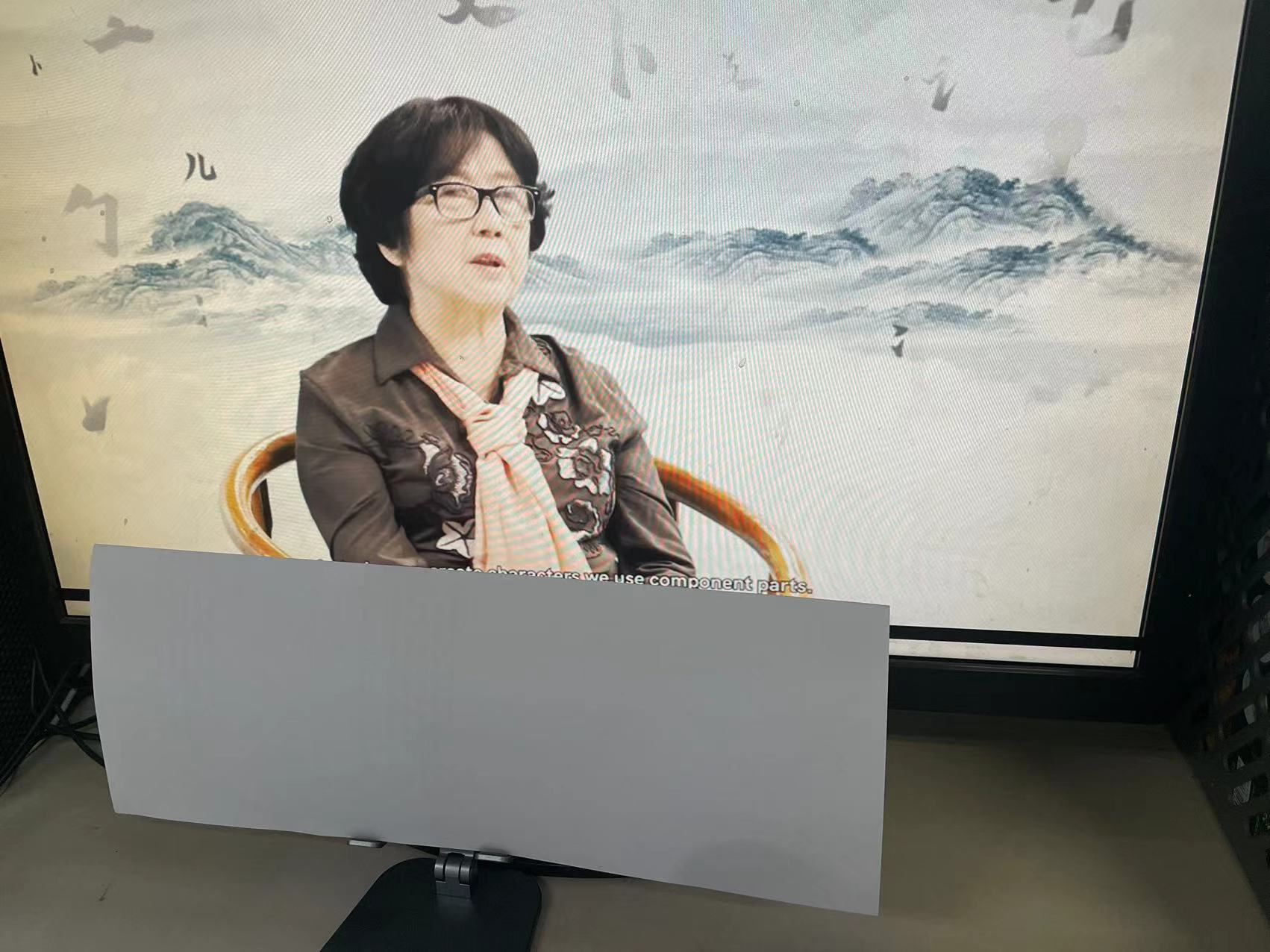BLCU Continuing Education College
Chinese Language Education Platform

BLCU Continuing Education College
Chinese Language Education Platform

HSK test is the world's most authoritative and popular Chinese language proficiency assessment tool and standard for all types of Chinese learners. It has served 70 million test takers. Starting from this year, students who take HSK3 and above levels must take the speaking test (HSKK) at the same time.
1. HSKK Exam Format
HSK1-2 does not require an oral exam. Starting from HSK3, if you register for the HSK exam, you must register for the oral exam HSKK at the same time. Students taking the HSK3 exam need to take the HSKK初级Elementary at the same time, while students taking the HSK4 exam need to take the HSKK 中级Intermediate at the same time. Students taking HSK5 and HSK6 exams are required to take the HSKK 高级Advanced simultaneously.
All of the three levels of HSK exam have 3 parts. The exam is conducted in the form of recording one’s answers. It usually takes within half an hour.
Download sample test paper:
HSKK 初级 Elementary Listening material
HSKK 中级 Intermediate Listening material
HSKK 高级 Advanced Listening material
1.1 HSKK初级Elementary
HSKK初级Elementary consists of three parts: Listen and Repeat, Listen and Answer, and Answer Questions. The exam will take a total of 17 minutes, including 7 minutes of preparation time.
1.2 HSKK中级Intermediate
HSKK 中级Intermediate also consists of three parts. They are: Listen and Repeat, Describe the Pictures, and Answer Questions. The exam will take a total of 23 minutes, including 10 minutes of preparation time.
1.3 HSKK 高级Advanced
HSKK高级Advanced consists of three parts: Listen and Repeat, Read a Passage, and Answer Questions. The exam will take a total of 25 minutes, including 10 minutes of preparation time.
2. Tips for Each Question Type
2.1 Listen and Repeat 听后重复 (HSKK Elementary & Intermediate 初级和中级)
2.1.1 Introduction
• Shorter sentences for elementary level and longer sentences for intermediate level
• 15 sentences for elementary and 10 sentences for intermediate
• Each sentence is played once, with approximately 10 seconds left after the beep for the students to repeat.
2.1.2 Standards of grading
Require students to repeat the sentences in the recording accurately.
2.1.3 Tips
• Repeat the sentence completely, the same as the recording.
• There is only 10 seconds to repeat the sentence, which is very short and there is no time to rethink or rewrite.
• Usually they are single sentences without very complex sentence structures.
• Be familiar with basic sentence patterns in Chinese, students preparing for HSKK intermediate also need to be familiar with some special sentence patterns.
2.2 Listen and Repeat 听后复述 (HSKK Advanced 高级)
2.2.1 Introduction
• Three short paragraphs of 120-140 words
• Each question is played once
• Repeat after listening, each paragraph has 1.5 minutes
• The first paragraph usually is a story with HSK 3-4 words. The second one usually is a paragraph using HSK 5 words to express the author's viewpoint and viewpoint. The third paragraph is usually about introducing the nature, knowledge or rules with HSK 6 words.
2.2.2 Standards of grading
Require students to be able to fully and fluently retell the main content of the material, with fewer pauses and repetitions.
2.2.3 Tips
• If you don't understand a message or word, don't hold onto it and continue listening to what comes next.
• Try to keep the original content and viewpoints as completely as possible, without changing the order, and try to maintain the key vocabulary of the original text.
• If some content is difficult to remember, you can express it in your own words, but be careful not to have grammar errors.
• Try not to have pauses, repetitions, etc
2.3 Listen and Answer听后回答 (HSKK Elementary 初级)
2.3.1 Introduction
• Each question is played once and students need to listen and give a short answer.
• 10 questions in total.
• 10 seconds left after the beep for each question
2.3.2 Standards of grading
Require students to be able to answer questions correctly and succinctly.
2.1.3 Tips
• Give up and focus on the next question when you don't understand a question.
• Try to answer questions using complete sentences. An incomplete answer is not a mistake, but it may not result in a high score.
• Start answering immediately after the beep and complete the answer within 10 seconds. If you feel there's not enough time, a brief/short answer can be used without affecting the answer to the next question.
• Imitate the word order of the question in your answer to avoid grammar errors. Chinese question sentences and statement sentences generally use the same word order.
2.4 Describe the Pictures看图说话 (HSKK Intermediate中级)
2.4.1 Introduction
• 2 pictures
• Describe the content of the pictures
• 2 minutes for each picture
2.4.2 Standards of grading
The answer matches the content of the picture; expresses fluently, with a few pauses and repetitions.
2.4.3 Tips
• Find the information in the picture
• Discover special details
• Supplement relevant details and tell the complete story
• Pay attention to the preparation time
2.5 Read a Passage朗读短文 (HSKK Advanced 高级)
2.5.1 Introduction
• A passage with 300 characters
• Read aloud within 2 minutes
• 10 minutes of preparation time(including “Answer Questions”)
2.5.2 Standards of grading
Require the students to be able to read fluently and grasp pronunciation, intonation well, with a small amount of errors, repetition, pauses, etc.
2.5.3 Tips
1) Read Chinese characters accurately
• same character but different pronunciation 落luò实、落là东西、强qiáng调、倔强jiàng
• The pronunciation of Chinese character is different from its component 迸bèng发、发酵jiào
• Similar shapes with different pronunciations 薄báo、簿bù;陡dóu、徒tú
2) Pay attention to the light and stressed tones
• 轻声Neutral tone 漂亮 知道 了 呢 吗
• Stress in a word 飞机、长江、提高、支出、价格、人民
• Stress in a sentence:the part you want to emphasize
3) Pay attention to the pauses, pace, and intonation of a sentence
• Pause based on punctuation marks or phrases. Eg. 山田小姐/今天下午/要去百货大楼/买新上市的春装。
• Excited emotions, urgent matters, speak quickly; painful and sad emotions, speaking slowly; introduce things at a general pace
• The intonation of question sentences rises; statement of facts with a flat tone; expressing doubt and irony, starting from low, then high, and then low again. Eg.你可真是个“好人”啊!
4) Express the emotions of the article correctly
• Basically, it's all positive energy in the exam.
• Pleasant, cheerful, and enjoyable emotion
2.6 Answer Questions回答问题 (HSKK Elementary, Intermediate & Advanced 初级、中级和高级)
2.6.1 Introduction
• All of the HSKK levels have “answer questions”
• 2 questions listed on the test paper
• Elementary: 7 minutes of preparation time, with 1.5 minutes for answering each question. Eg.请介绍一下你的爱好。
• Intermediate: 10 minutes of preparation time(including “Describe the Pictures”), with 2 mins for answering each question. Eg. 你有什么兴趣和爱好?情谈谈它对你的影响。
• Advanced: 10 minutes of preparation time(including “Read a Passage”), with 2.5 mins for answering each question. Eg. 大学选择专业的时候,应该选择感兴趣的专业,还是选择未来容易就业的?为什么?
2.6.2 Standards of grading
Require the students to be able to answer questions with rich content and fluent expression, with only a few pauses, repetitions, and grammar errors.
2.6.3 Tips
1) Use the preparation time appropriately
2) Suggested length of each answer:
Elementary: around 100-150 characters
Intermediate: 200-300 characters
Advanced: 300-450 characters
3) Make sure your answer matches the question!
4) Describe a story - pay attention to clear logic, when, where, who, what, how, result;
Express viewpoints and opinions - clearly state your own views first, and then explain the reasons.
5) Talk about the key content first!
6) Expressing appropriately, fluently, and accurately in pronunciation
7) Prepare some sentence structures
3. How to Improve My Chinese Speaking?
3.1 Improve your Chinese to the corresponding level
The HSKK speaking test tips in this article are based on the fact that you already have the appropriate HSK level. If your overall Chinese level is not at the HSK level you want to take, it is useless to prepare for the speaking test alone. You may not be able to answer the questions if you can't understand/read them. Therefore, the first step is to first improve your Chinese language generally, and you need to improve listening, speaking, reading and writing, all four skills. On the basis of completing the study of the corresponding HSK content, you can add the oral exam pre-training.
General Chinese Course: www.eblcu.com/gcc
3.2 You can improve your speaking by practicing listening
Speaking and listening skills interact with each other. Practicing listening helps with your speaking. If you don't have a lot of opportunities to practice Chinese speaking, you can improve through listening. Besides formal study, you can also listen to or watch Chinese TV programs, videos, movies, or even entertainment programs. For intermediate and advanced levels, I suggest to watch more interview programs and listen to how others answer questions and express a whole paragraph. Watching some Chinese speech/presentation videos is also highly recommended, talk show is also good. Beginners can watch to Chinese programs with English (or your language) subtitles, and as your Chinese get better, you can change to Chinese subtitles or turn them off.

This is how I do when I study a language. Cover the subtitles with a piece of paper and peek through the cracks when I don’t understand something.
3.3 Pay attention to your pronunciation in daily life
It is important to pay attention to your pronunciation in daily life. For example, if you have already noticed that you have a problem with the third tone, you need to pay more attention to whether you are saying it correctly in everyday speech. In addition, you also need to pay attention to some details, for example, to have eh, ah and other intonation, pause too long, etc., and change in life rather than just to prepare for the test. Record your speech, listen and try correct it by yourself will also help.
3.4 Practice reading aloud instead of just silently reading
Reading aloud and reading are two different exercises; reading is needed in the HSK exam. If you are preparing for HSKK oral exam and improving your speaking skills, practice reading aloud. Reading aloud can help you identify many problems with pronunciation and expression. In addition, you can record yourself, listen and try correct it by yourself will also help. You may not notice the mistakes when you read or speak, and you will be more impressed if you listen to your own recording again and correct your own problems.
3.5 BLCU online Chinese courses can help you improve
It is definitely easier and more scientific to learn with the guidance and help of a Chinese teacher than learning on your own. You can choose a course of us according to your needs.
If you are preparing to take the HSK exam in the future or just want to improve your Chinese language skills, you can choose our general Chinese course. www.eblcu.com/gcc
If you are going to work in a Chinese company or do business with Chinese people, you can choose the Business Chinese course. www.eblcu.com/obc
All of our courses are available in group classes and 1-on-1 classes, so you can choose according to your needs.
If you want to have a teacher to help you prepare for the speaking test, we also have 1-on-1 HSKK speaking test preparation course.
Click here to book a FREE trial class and get academic advice for your learning!


